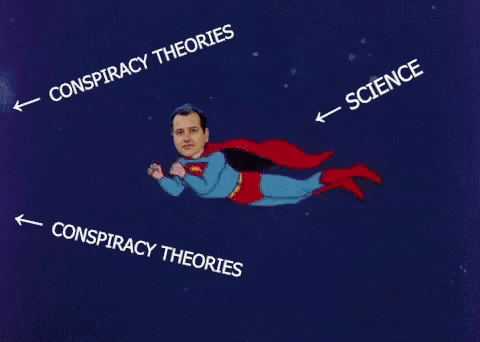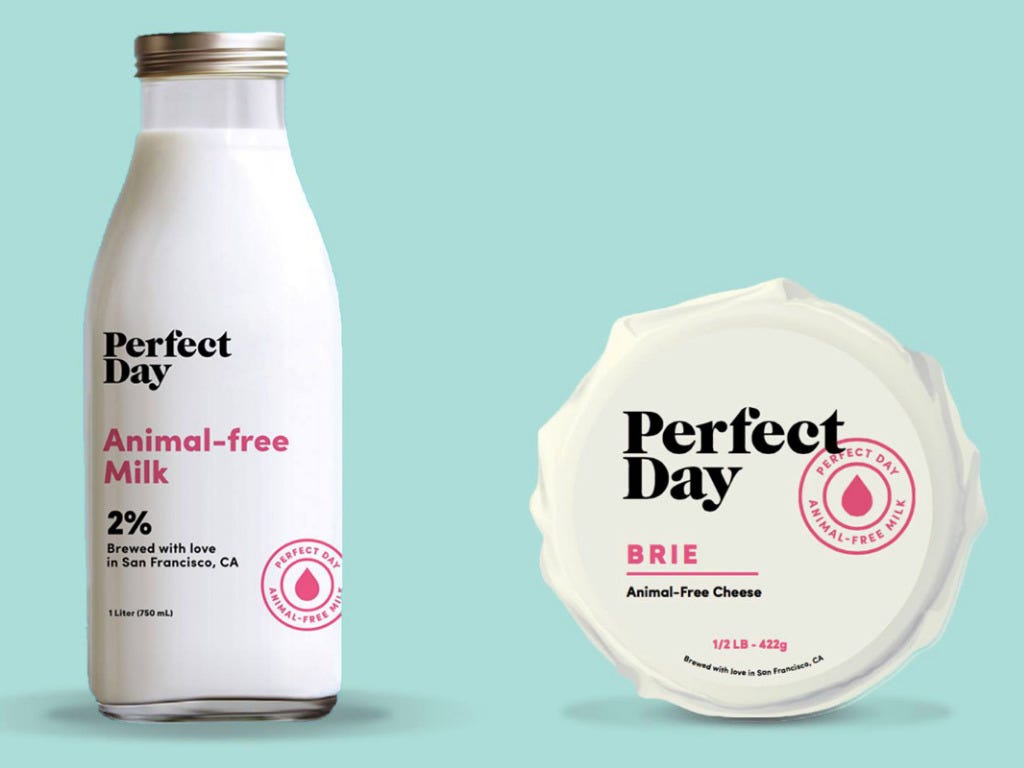Better Bioeconomy Weekly - Mar 20th 2023 🌏
Only 3% of US consumers consider meat as a major problem for climate change. Are we solving a problem consumers don’t know they have?
WORD BUFFET 📖
Why plant-based milk is better for the environment than dairy milk 🌱🥛
Dairy production requires a significant amount of land for raising cows and feed production, which can lead to deforestation and biodiversity loss. Plant-based milk production requires ~ 9 times less land.
The dairy farming industry is notorious for its high water usage, putting immense pressure on freshwater supplies and contributing to water pollution from manure runoff and fertilizer and pesticide use.
Dairy farming generates high emissions from cows and manure management, fertilizers and pesticides used for feed crops, and refrigerated transportation.
How Singapore is using alternative proteins to boost food security 🇸🇬
Singapore is leading the way in the alternative protein sector, with local start-ups producing plant-based and cultivated meat products that are being served in restaurants across Asia and the Middle East.
The cultivation of meat directly from animal cells is a more sustainable and efficient alternative to traditional animal agriculture, which can be vulnerable to supply chain shocks and has a significant impact on the environment.
Singapore aims to produce 30% of its own food by 2030 to enhance food security by embracing alternative proteins and developing sustainable agri-food capabilities.
The future of agriculture is vertical: 6 benefits you need to know 🌾👆🏾

Vertical farming allows for higher crop yields per given space compared to traditional farming.
It reduces water use and waste by 70%-95% compared to traditional farming.
It offers a promising solution to the dwindling availability of arable land caused by industrialization and urbanization. By utilizing spaces like rooftops or abandoned buildings, vertical farms require much less land than traditional farming methods.
The untapped potential of mung beans as an alternative to animal-based proteins in Asia 🌏
77% of new plant-based meats in Southeast Asia in 2022 were primarily made from Western-grown wheat and soy. Mung beans could help diversify the region's alt protein industry.
Mung beans have potential applications in dairy, meat, and egg categories, catering to lactose-intolerant consumers without triggering other common allergens like soy and wheat proteins.
Another key benefit of mung beans is their sustainability, as they require less water and land compared to animal-based proteins, making them a sustainable protein source that can help address food insecurity in Asia.
10 myths about the plant-based diet debunked by a cardiologist 🌱🫀
Plant-based diets provide enough protein and essential nutrients for all stages of life and even athletes.
Adequate vitamin B12 and vitamin D can be obtained through plant-based diets with proper supplementation.
Plant-based diets can provide omega-3 fatty acids, iron, calcium, and fiber through plant-based sources, and do not lead to virility issues, intestinal diseases, or higher costs compared to omnivorous diets.
New life-cycle assessment highlights the benefits of cultivated meat 🧫🥩
Cultivated meat is almost 3 times more efficient than even the "most efficient" livestock at turning crops into meat, resulting in significantly lower agriculture land use and nitrogen emissions.
Animal products have a high climate impact, emitting much more greenhouse gases than plant-based sources. However, cultivated meat produced with renewable energy can have a lower carbon footprint than beef and pork.
To ensure sustainable production of cultivated meat, producers should optimize energy efficiency, source renewable energy, and collaborate on sustainable feedstocks.
Majority of the consumers will try precision fermentation products once they understand the benefits 🦠
77% of US adults familiar with precision fermentation technology are likely to purchase precision fermentation products, indicating significant market potential.
Millennials and Gen Z are the most interested in adopting new food technologies like precision fermentation and prefer products from companies that prioritize sustainability and animal welfare.
Precision fermentation has already seen interest from major food conglomerates including Nestlé, General Mills, and Unilever, and the report predicts the category will see support from more than 132 million adults by 2027.
Ag and tech giants join forces to revolutionize the agriculture industry with cloud-based data tools 🤝
Bayer and Microsoft collaborate to develop a cloud-based suite of data tools for the agriculture and food industry, while AWS announces partnership with data infrastructure startup Leaf.
The core issue facing the industry is using datasets in a way that provides useful and actionable insights to farmers, and this partnership could help to ensure datasets are interoperable and consistent with one another.
To date, many ag tech startups have tried to do data processing and organization in-house, which costs a lot of money and means they have spent a significant amount of time on that instead of building usable and useful products for farmers.
SOCIAL FEAST 📱
Disruption is never frictionless: The future of plant-based looks bright 🌟

The transformation of the food system to eliminate animal agriculture requires a variety of solutions in the field of food innovation and technology, and it won't happen overnight.
There are several barriers to mass adoption of plant-based foods, including technological, infrastructure, and behavioural barriers, but these are not insurmountable.
Taste is a crucial factor in the success of plant-based foods, and the industry needs to focus on creating products that match or exceed the taste of animal-based alternatives.
The importance of SVB for climate tech and net-zero goals 🏦
Silicon Valley Bank (SVB) is strategically important to the climate tech sector as it has supported early-stage tech founders for over 40 years and propped up the vital sector for at least a decade.
A seismic shock to the tech ecosystem could derail important climate progress and gathering sector momentum, so it is crucial to prevent a total failure of SVB.
The failure of SVB could result in a disproportionate pain, with already stretched net-zero targets moving further out of reach, bearing an altogether more frightening climate burden than a tech-led economic shock.
The fatal flaw of sustainability and climate startups 📉
We are solving a problem consumers don’t know they have 🤔
Only 3% of US consumers consider meat as a major problem for climate change despite the livestock industry's contribution of 16.5% of global greenhouse gas emissions, deforestation, water use and waterways pollution.
Consumers need to be educated and informed about the environmental impact of their dietary choices and given reasons to consider alternatives to meat.
There is a need to connect the dots between diets and climate to combat greenwash, messaging about processing, and fake solutions like biogas, seaweed extracts, and regen grazing.
Debt distress and food inflation: The challenges facing low and middle-income countries 💸📉
Acute food insecurity is affecting 349 million people globally, with 45 countries needing external food assistance and 828 million people facing persistent hunger.
Global South countries' external debt has reached a record high of $9 trillion in 2021, with the poorest countries seeing a 35% increase in the cost of servicing their debt in 2022.
Many low and middle-income countries are at high risk of debt distress, with food price inflation causing countries in Sub-Saharan Africa to spend an additional $5 billion on importing essential foods in 2022, receiving less food in return.
EAR FOOD 🎵
Sonalie Figueiras shares her journey of creating one of the biggest climate media platforms in the world 🎢
Learn about Sonalie's journey as she openly shares her struggles with self-doubt, imposter syndrome, and facing misogyny and failure.
Sonalie shares how she started to appreciate the relationship between food production, human health, and planetary health, as well as the role of Asia in the alternative protein market.
She also shares her love for work and how her experience working in disadvantaged communities shaped her into who she is today.
Supporting farmers in the transition to regenerative agriculture 👨🏽🌾👩🏻🌾
Agriculture has the potential to sequester carbon from the atmosphere and help reverse climate change, but farmers are already struggling with debt and pressure to produce more with less.
The transition to regenerative agriculture requires support from various stakeholders including farmers, corporates, governments, and investors.
Collaboration models, funding sources, and a mindset shift are needed to help farmers manage their lands regeneratively and profitably, including support for indigenous producers.
The path to success in cultivated meat: The role of CRISPR and bioengineering 🧬
Bioengineering animal cells can make plant-based meats more appetizing and commercially viable, although large-scale production of animal cells for meat production is currently unrealistic.
In a difficult time for startups to raise VC cash, Josh March's startup, SciFi Foods, raised $22 million to bioengineer better animal-free beef.
Josh is betting big that technologies like bioengineering and CRISPR are actually the only path to success in this field, and he believes that this is the future of meat.
VISUAL DELIGHT 🎥
Can we feed ourselves without devouring the planet? 🍽🌎
Farming is one of the most damaging activities that humans have done to the environment. The global food system is at risk of collapse.
Innovative technology solutions are necessary to reshape food production and prevent environmental damage, such as lab-grown protein-rich foods and no-till farming.
A future-focused vision is necessary to enable humans to feed themselves sustainably without damaging the planet.
Thanks for reading! Have an awesome week 🙌🏾
Want to stay up-to-date with weekly news and updates? Subscribe for free!
If you liked this newsletter, please consider sharing it with your friends.
Want to stay connected on other platforms? You can find Better Bioeconomy on Medium, Instagram, LinkedIn, and Twitter!







